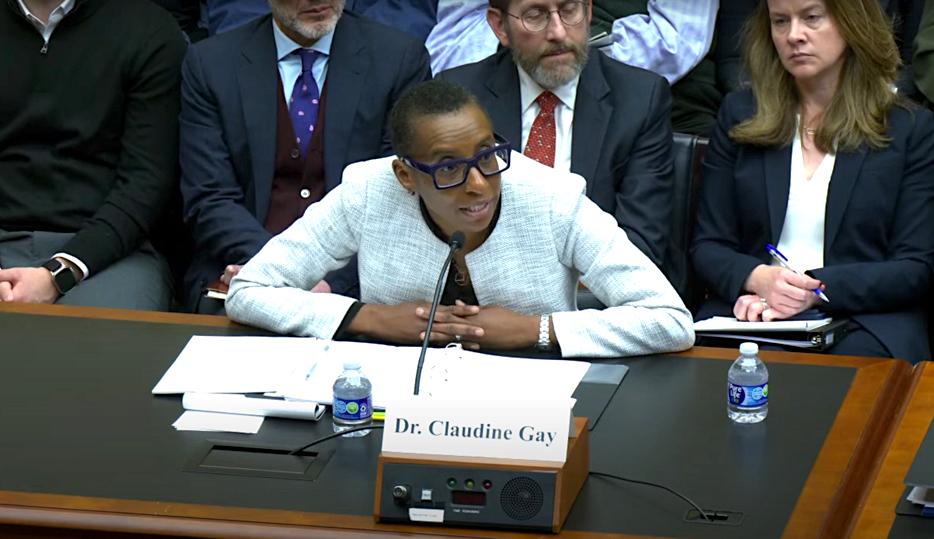Harvard, UPenn, MIT presidents blasted over failed responses to campus antisemitism
Does calling for genocide against the Jewish people constitute harassment and bullying under the policies of an Ivy League university?
At Harvard, it depends, said Claudine Gay, university…

Does calling for genocide against the Jewish people constitute harassment and bullying under the policies of an Ivy League university?
At Harvard, it depends, said Claudine Gay, university president, who appeared before a House committee along with other university presidents, to defend their shaky records on combatting campus antisemitism.
Gay was questioned by the House Committee on Education and the Workforce, which also questioned the heads of the University of Pennsylvania (UPenn) and the Massachusetts Institute of Technology (MIT), along with a Jewish studies professor from American University.
Tuesday’s hearing was an opportunity for the leaders to “answer to and atone for the many specific instances of vitriolic, hate-filled antisemitism on your college campuses that have denied students the safe learning environment they’re due,” said Rep. Virginia Foxx, R-North Carolina, committee chair.
Antisemitism has run rampant on college campuses across the country following the Oct. 7 terrorist attacks and subsequent hostage situation committed by Hamas against Israeli civilians.
At MIT, Jewish students have described being physically blocked from attending classes by a pro-Palestine group called the Coalition Against Apartheid, which reportedly celebrated the Oct. 7 attacks.
Despite evidence that dangerous antisemitic activities are taking place on campuses, the university leaders appealed to policies on free speech to defend their lack of action.
“We recognize the right of peaceful protest and assembly, and we give broad protection to free expression – even expression that is offensive,” Liz Magill, UPenn president, said in the hearing.
But it was Gay who sparked widespread furor when refusing to directly answer a question from Rep. Elise Stefanik, R-New York, who asked if calling for genocide against the Jewish people constitutes harassment and bullying under Harvard’s policies.
Gay said that calls for genocide can be considered harassment “depending on the context” and that the University would step in if such rhetoric “crosses into conduct.”
Even Andrew Bates, White House deputy press secretary, publicly responded: “It’s unbelievable that this needs to be said: Calls for genocide are monstrous and antithetical to everything we represent as a country.”
Following the hearing, a pair of Jewish UPenn students filed a lawsuit alleging that the university selectively enforces anti-harassment rules to the detriment of Jewish students, employs “rabidly antisemitic professors,” and has ignored the outcry of Jewish students seeking protection from antisemitism on campus.
“Emboldened by years of Penn’s tolerance and enabling of antisemitism, and deliberate indifference to Jewish students’ complaints, Penn students and faculty openly support and extol Hamas’s atrocities,” the lawsuit says.
The House hearing comes amid reports that 75% of Jewish students are dissatisfied with their university’s response to antisemitism, and 73% of Jewish students have experienced or witnessed antisemitism this school year.
“I can only imagine how terrifying it is to be a Jewish woman on any of your campuses,” Rep. Julia Letlow, R-Louisiana, said amid discussions about the sexual violence committed by Hamas on Oct. 7. “There has to be real action to hold antisemitic students accountable. For their behavior, they should be expelled.”



